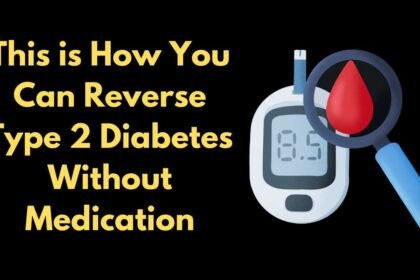The hormone Cortisol, long known as the body’s primary stress-responder, is increasingly found to play a significant role in the onset and management of diabetes.
As the incidence of both Type 2 Diabetes Mellitus and stress-related disorders rises globally, mounting evidence suggests that cortisol may be a crucial missing link in the complex interplay between stress and glucose regulation.
How Cortisol Raises Blood Sugar
Cortisol is a steroid hormone produced by the adrenal glands in response to activation of the Hypothalamic–Pituitary–Adrenal (HPA) axis during stress.
While essential for survival, enabling the body to mobilise energy during acute threats, its metabolic actions make it problematic when chronically elevated.
According to endocrinologist John Buse, “Too much cortisol can cause blood sugar to rise through a variety of different mechanisms, including the way insulin is produced and works in the body.”
Specifically, cortisol:
- Stimulates the liver to produce and release glucose into the bloodstream through gluconeogenesis.
- Reduces uptake of glucose in muscle cells, leaving more circulating in the bloodstream.
- Promotes breakdown of fat (lipolysis), freeing fatty acids that the liver can convert into glucose.
- Inhibits insulin secretion from the pancreas and promotes insulin resistance.
These mechanisms explain why people under prolonged stress can experience persistent high blood-glucose levels and why individuals managing diabetes face a double burden.
A Vicious Cycle: Stress ↔ Diabetes
Living with diabetes is itself a source of stress, from monitoring glucose to managing medications, diet, and complications.
Research shows a bidirectional relationship: chronic stress worsens glycaemic control, and diabetes-related distress exacerbates the stress response.
A 2024 study found that patients with type 2 diabetes had higher hair cortisol levels than non-diabetic controls and that diabetes-specific distress (rather than general stress) correlated with poor glycaemic control and insulin resistance.
Moreover, long-term stress and obesity are strongly linked to the development of type 2 diabetes.
According to a recent review, psychological and physical stress increase glucocorticoid (including cortisol) and catecholamine secretion, heightening insulin resistance and driving metabolic failure.
When Cortisol Levels Go Beyond Stress
While acute stress triggers temporary cortisol surges, some individuals may have chronically elevated cortisol, a condition sometimes referred to as “mild hypercortisolism,” which may hamper diabetes treatment.
Dr Buse’s research suggests that about 24 % of participants with difficult-to-control type 2 diabetes showed evidence of mild cortisol excess.
While the well-known disorder Cushing’s Syndrome involves clear cortisol overproduction due to tumours or steroid use, subclinical elevations may go undiagnosed yet still disturb glucose management.
Implications for Diabetes Management
For clinicians and patients alike, the intersection of cortisol and diabetes brings fresh opportunities.
First, it underscores the importance of stress management as an integral part of diabetes care, not just as added advice, but as a strategy with direct metabolic benefits.
Second, for patients whose blood sugar remains uncontrolled despite multiple therapies (including newer agents such as GLP-1/GIP agonists or SGLT2 inhibitors), it may be worth considering evaluation of cortisol levels.
Tests such as late-night salivary cortisol, 24-hour urinary cortisol, or a low-dose dexamethasone suppression test can detect dysregulated cortisol production.
Third, managing stress effectively can deliver “double-benefits” – helping to blunt cortisol spikes and improve glycaemic control. Recommended strategies include:
- Adequate sleep and regular physical activity
- Social connection and psychological support
- Mind-body practices such as deep breathing, meditation, or yoga
What This Means in Practice
For persons with diabetes, becoming aware of the stress-cortisol connection can lead to more mindful self-care.
Recognising the signs of chronic stress, such as persistent high blood sugar despite adherence, sleep disturbances, increased visceral fat, or blood-pressure change,s may prompt discussions with health-care providers about cortisol testing.
Meanwhile, health-care systems should consider integrating stress-screening and cortisol-dysregulation assessment into diabetes management pathways.
Given that the global burden of diabetes continues to climb, a hormone once considered only in endocrinology may now prove crucial in metabolic medicine.












